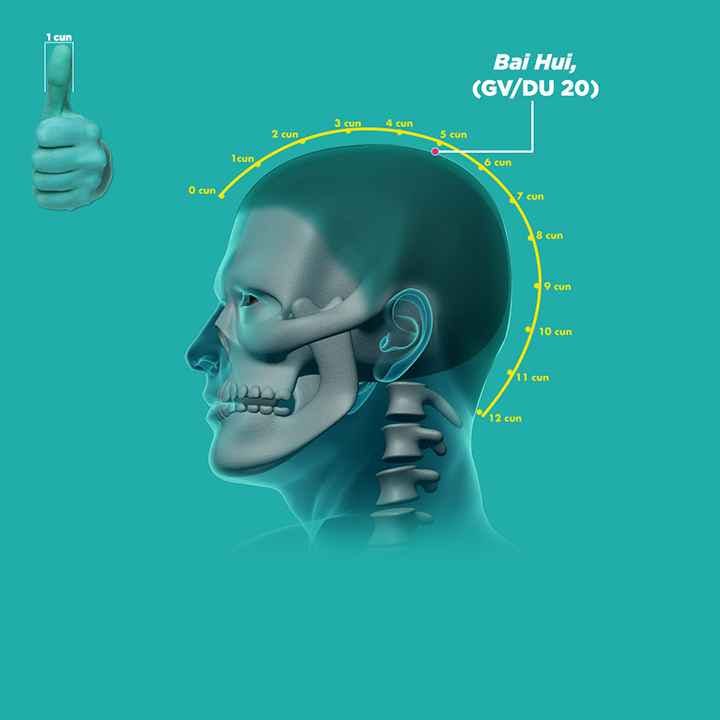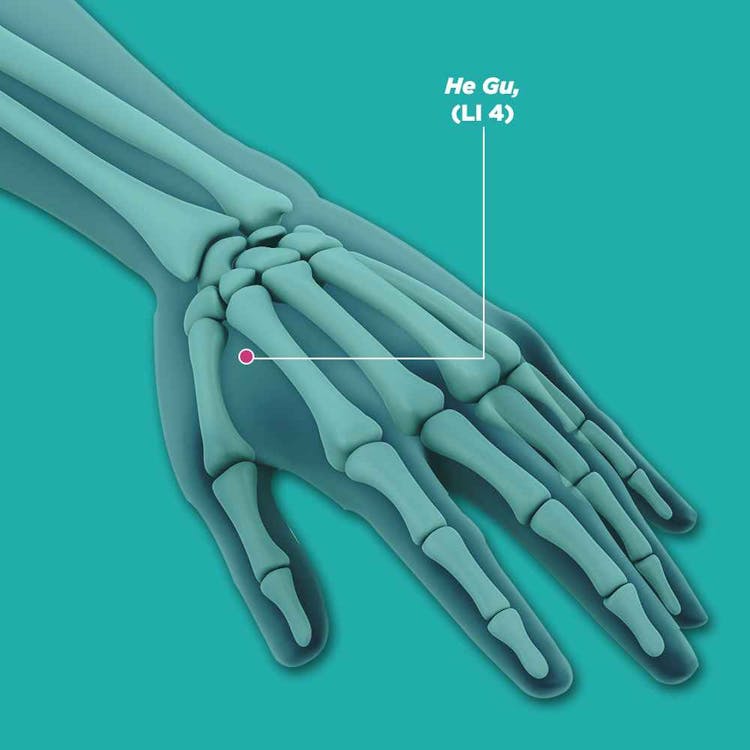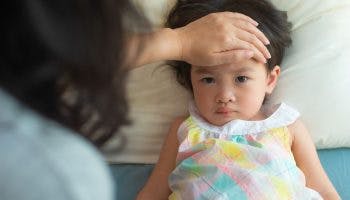4 Ways to Manage Attention Deficit Disorder in Children
Published | 7 min read
Did you know your child’s incessant daydreaming could be attention deficit disorder? Learn more about the condition and its treatments.
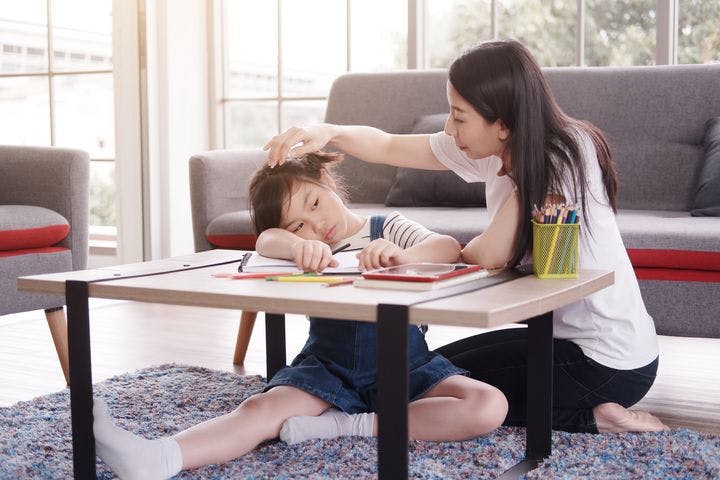
Have you ever noticed your child getting angry easily or having difficulty doing what they’re told? Parents may think their kids could be acting out because of their age, but you can never be sure without testing. Attention deficit disorder (ADD) creates obstacles for young children to learn and follow instructions. These symptoms can last through adulthood.
Understanding attention deficit disorder and noticing the symptoms are critical first steps to supporting your child. However, identifying it and knowing the causes and treatments will also be helpful in fulfilling your little one’s needs.
What is Attention Deficit Disorder?
Attention deficit disorder (ADD) is a chronic condition known to impact the daily lives of individuals, extending into their relationships, and academic or personal achievements. It causes forgetfulness, impulsiveness, and concentration problems.
This disorder starts at a young age but continues until adulthood. So, it’s crucial to recognise it before problems such as poor self-esteem and social skills arise in the child. You may think your child is daydreaming, but they could have ADD.
Look out for these symptoms of ADD:
- Having a hard time paying attention to detail
- Forgetting where things are
- Being disorganised
- Having trouble following directions at home, school, or play
- Disliking or completely avoiding long, mental tasks such as homework
- Making careless mistakes
- Getting distracted easily or not listening
- Struggling with instructions
It’s good to note that diagnosing this disorder in very young children can be difficult because of developmental problems. Though signs of ADD or
Are ADD and ADHD the same thing?

ADHD or attention deficit hyperactivity disorder is the updated medical term for ADD. While some people still use the term ADD to refer to inattentive ADHD, the diagnosis applies even if a child doesn’t display hyperactive or impulsive behaviour. Today, medical professionals evaluate the child’s most prominent symptoms instead.
As stated by the Diagnostic and Statistical Manual of Mental Disorders (DSM), ADHD can be categorised as one of three conditions:
- Mostly inattentive presentation (this used to be called ADD)
- Predominantly hyperactive-impulsive presentation
- A combination presentation (this includes both inattentive and hyperactive-impulsive symptoms)
It is important for children with prominent inattentive symptoms to be evaluated. Early intervention, especially in cases like these, is always recommended.
The Causes of Attention Deficit Disorder
From a Traditional Chinese Medicine (TCM) perspective, the disorder is present because of a weak constitution with dietary and environmental factors considered.
“The primary causes of ADHD in children are a weak body constitution and lack of Kidney essence. A child with Spleen Qi Deficiency or Liver Yang hyperactivity may also be at risk of ADHD. Symptoms associated with these body constitutions include restlessness, an inability to focus, irritability, night urination, indigestion, poor appetite, poor sleep quality, impulsiveness, fidgeting, recklessness, and interrupting.”
TCM Physician
Ways to Manage Attention Deficit Disorder

If your child has been diagnosed with ADD or ADHD, managing the symptoms will differ from how other parents may communicate or handle certain situations. Some parents may also feel unsettled at the thought of giving stimulant medications to help their child focus better throughout the day.
Stimulant medications are considered safe but may have various side effects, such as stomach and sleep problems, changes in appetite, or a negative impact on your child’s mental health and mood.
Here are several natural ways to manage attention deficit disorder.
Acupuncture
Now popular and practised in Western countries, acupuncture helps manage ADD and ADHD symptoms.
According to a study published in Medical Acupuncture, this TCM treatment connects the Heart and mind in patients and can go a long way to balance the root cause of ADHD. A TCM physician may use a single needle or magnetic pellet treatment.
An European Journal of Integrative Medicine research found that acupuncture positively influenced cognitive function in patients who weren’t on ADHD medication, making it a good alternative to conventional medicine.
A few common acupuncture points used are si shen cong (EX-HN1), san yin jiao (SP6), tai chong (LR3), bai hui (GV20), qu chi (LI 11), and he gu (LI4).
Herbal Remedies
Another TCM treatment worth considering is Chinese herbs. Scientists found that using TCM formulas on children with ADD, ADHD, and related problem behaviours may prove useful.
Because of the belief that ADHD and ADD stem from a child’s weak constitution, it’s recommended to integrate the following ingredients in their diet to improve the condition:
- Goji berries (gou qi zi, 枸杞子), black beans (hei dou, 黑豆),
sea cucumber (hai shen, 海参), and black sesame seeds (hei zhi ma, 黑芝麻) for invigorating the Kidneys Liu Wei Di Huangpills Si Shen Soup (四神汤) for supporting digestive health and strengthening the SpleenPearl powder for soothing the mind and promoting sleep
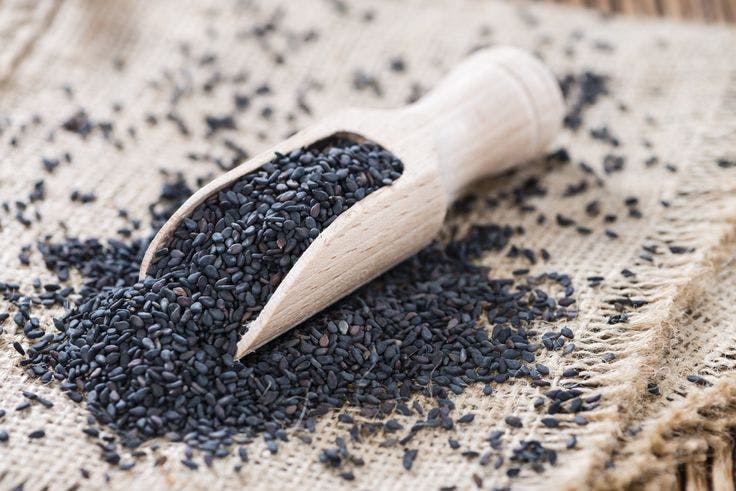
Acorus pills is another remedy formulated with Chinese herbs and can be taken specifically for attention deficit disorder and hyperactivity. They comprise herbs such as bamboo sap, raw Rehmannia (shu di huang, 熟地黄),
Remember to consult a registered TCM physician before giving herbal formulas to your child.
Diet
Similar to how health is related to a balanced diet, TCM also emphasises on balance. However, each child may have symptoms that present differently from another while having the same diagnosis. It’s important to visit a TCM practitioner to evaluate what your child needs, as everyone has a different body constitution.
Deficiencies in zinc, magnesium, iron and vitamin D are associated with ADHD. While considering the previously mentioned herbs, the following TCM ingredients are also recommended to
- Green bean soup (lu dou sha, 绿豆沙), which is rich in potassium, fibre, magnesium, folate, and vitamin B6
- Walnuts (he tao, 核桃) as it contains folate, vitamin E, and omega-3 fatty acids
- Astragalus root (huang qi, 黄芪), Angelic Sinensis Radix (dang gui, 当归), and saffron (zang hong hua, 藏红花) help with blood formation
Parental Training
There are programs to reset and improve your relationship with your child. Start by learning how to use praise effectively and establish consequences when they don’t comply. You can also set up and foster behaviours you’d like to see.
Another way to help your child overcome the symptoms of ADD is individual cognitive behavioural therapy. They can learn to interact with their parents and peers in a healthier way and train their social skills.
Because attention deficit disorder is linked to other conditions, understanding and identifying it early can help your child have a healthier life. Getting the right treatment can help your child develop new skills and cope with their symptoms.
Took a different approach to address the condition? Tell us in the comments below.
This is an adaptation of the article “How to Best Support a Child with Attention Deficit Disorder”, which first appeared on the All Things Health US website.
References
- Child Mind Institute. ADHD and Behavior Problems. [online] Available at: <https://childmind.org/article/adhd-behavior-problems/> [Accessed on 14 February 2023]
- European Journal of Integrative Medicine. 2016. Treating attention deficit hyperactivity disorder with acupuncture: A randomized controlled trial. [online] Available at: <https://www.sciencedirect.com/science/article/abs/pii/S1876382015300585> [Accessed on 14 February 2023]
- Journal of Alternative and Complementary Medicine. 2020. The Effects of a Traditional Chinese Medication on Children with Attention-Deficit/Hyperactivity Disorder. [online] Available at: <https://www.liebertpub.com/doi/10.1089/acm.2020.0009> [Accessed on 14 February 2023]
- Medical Acupuncture. 2020. Acupuncture, Attention-Deficit Hyperactivity Disorder, and the Energetics of Stimulants. [online] Available at: <https://www.ncbi.nlm.nih.gov/pmc/articles/PMC7041317/> [Accessed on 14 February 2023]
- NHS. Attention deficit hyperactivity disorder (ADHD). [online] Available at: <https://www.nhs.uk/conditions/attention-deficit-hyperactivity-disorder-adhd/> [Accessed on 13 February 2023]
- Nutrients. 2022. Effectivity of Saffron Extract (Saffr’Activ) on Treatment for Children and Adolescents with Attention Deficit/Hyperactivity Disorder (ADHD): A Clinical Effectivity Study. [online] Available at: <https://www.mdpi.com/2072-6643/14/19/4046> [Accessed on 14 February 2023]
- WebMD. 2021. ADD vs. ADHD. [online] Available at: <https://www.webmd.com/add-adhd/childhood-adhd/add-vs-adhd> [Accessed on 13 February 2023]
- Child Mind Institute. What is the difference between ADD and ADHD? [online] Available at: < https://childmind.org/article/what-is-the-difference-between-add-and-adhd/#:~:text=ADHD%20either%20way.-,What%20is%20the%20difference%20between%20ADD%20and%20ADHD%3F,diagnosis%20is%20ADHD%20either%20way.> [Accessed on 14 February 2023]
Share this article on
Was This Article Useful to You?
Reviews (1)
Explain clearly about ADHD.
Thanks.




